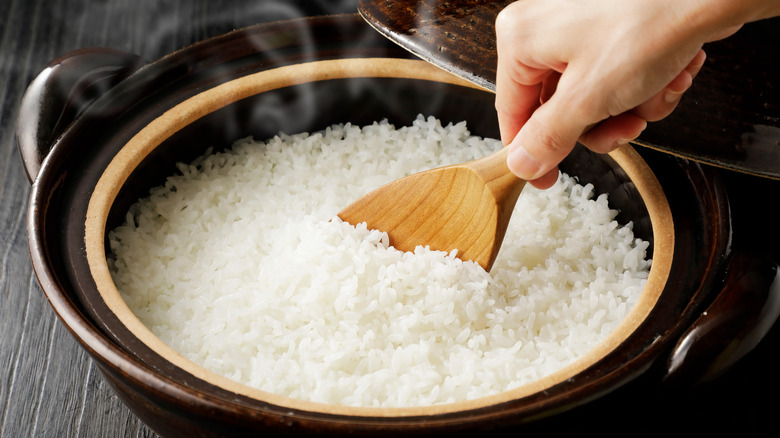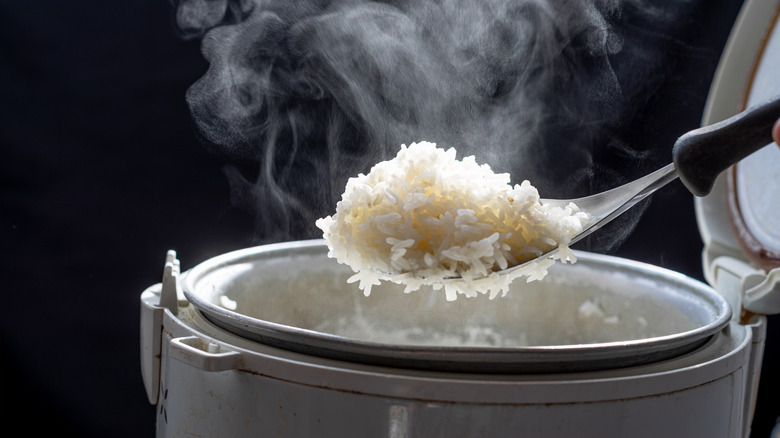Why Adding Salt Is So Important When Cooking Rice
It's hard to imagine a pantry without rice, that staple starch that shows up in so many of our favorite dishes, from paella to grain bowls to risotto, and which so steadfastly provides a tasty bed for soaking up soupy dishes including curries and stews. Whether it's brown, basmati, jasmine, or black, most of us probably have a bag or box of rice kicking around our kitchen at all times — but considering how ubiquitous it is, it's somewhat surprising how difficult rice can be to cook correctly.
If your home-cooked rice has ever turned out undercooked, overcooked, too hard, too mushy, or even scorched, then you know how tricky preparing perfect rice can be. The grain seems super-sensitive to any wrong move, be it choosing a pot that's too small, forgetting to wash the rice, lifting the lid to check on it, or — gasp! — stirring the rice as it cooks. And while some of us have certainly sat down to a pot of rice that's too salty (via Epicurious), Bon Appétit notes that under-seasoned rice is just as common an infraction.
Salt rice during cooking, not after
With all the pitfalls that can strike a person just trying to cook a darn good pot of rice, one thing you'll want to be sure to nail is getting the seasoning right — and luckily, that part of cooking rice is pretty easy.
According to Bon Appétit, you should think about rice the way you think about pasta, in the sense that adding salt to the cooking water is a non-negotiable if you want the starch to taste anything but bland by the time it's done cooking. The outlet recommends adding between a ½ teaspoon to 1 teaspoon for each cup of rice you're preparing. Self, meanwhile, suggests adding other seasoning at this point as well; you can even add a bit of butter.
As with every rule, there's an exception: in Asian cultures, including Korean, Japanese, and Chinese, it is not traditional to add salt to rice while it's cooking, per Food52; perhaps the salty soy sauce, fish sauce, and other condiments used in these cultures add plenty of salinity to the rice post-cooking. But when in doubt, we say go ahead and salt that rice cooking water.

